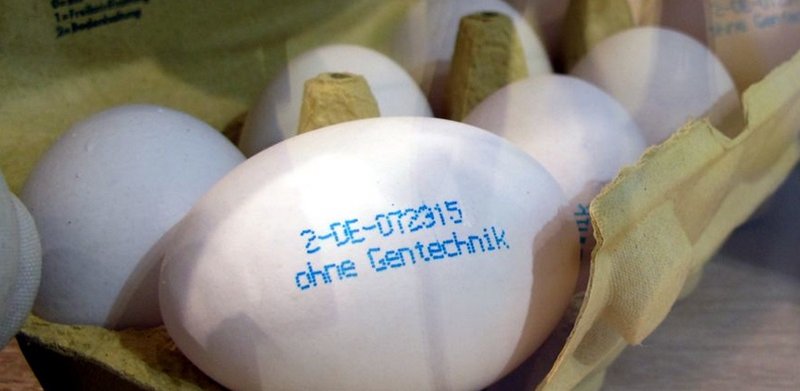News
Sales of "Ohne Gentechnik" eggs doubled in past 5 years
This means that most Easter eggs in Germany are now GMO-free. According to sector estimates, around 70 percent of eggs are produced GMO-free. Not all of them are labelled with the "Ohne GenTechnik" seal; GMO feed is also taboo in organic eggs, for example. There are now hardly any retail label egg packs in supermarkets that do not bear either the "Ohne GenTechnik" or the organic seal. The remaining 30 percent of eggs are mainly sent for further processing.
"To ensure that consumers can reliably buy GMO-free Easter eggs in the future, we need a full labelling requirement for all genetically engineered plants and products made from them," comments VLOG Managing Director Alexander Hissting. "Otherwise, producers can no longer be sure whether the plants in their chicken feed are really GMO-free. That is why the new German government must work at EU level to ensure that the proven labelling requirement for new genetic engineering is fully maintained. The likely new Federal Minister of Agriculture, Michaela Kaniber (CSU), has already spoken out in favour of this. We look forward to its implementation!"
In the case of eggs, the label primarily stands for the fact that the hens were not fed using genetically modified feed plants. To date, animal feed is the largest area of application for genetically modified plants in the food production chain.
A project by the business NextHen, in which even the chickens themselves were to be genetically modified, is apparently no longer being pursued. There was also the question of whether the eggs of such hens would have to be labelled as genetically modified. In a VLOG survey at the time, 70 percent of respondents stated that they would not buy such eggs.
The "Ohne GenTechnik" egg sales figures are based on information provided by the seal licence holders plus a flat-rate trade margin and VAT.
Clandestine genetic engineering in Easter eggs?
News page of the business NextHen (last news in January 2023)

